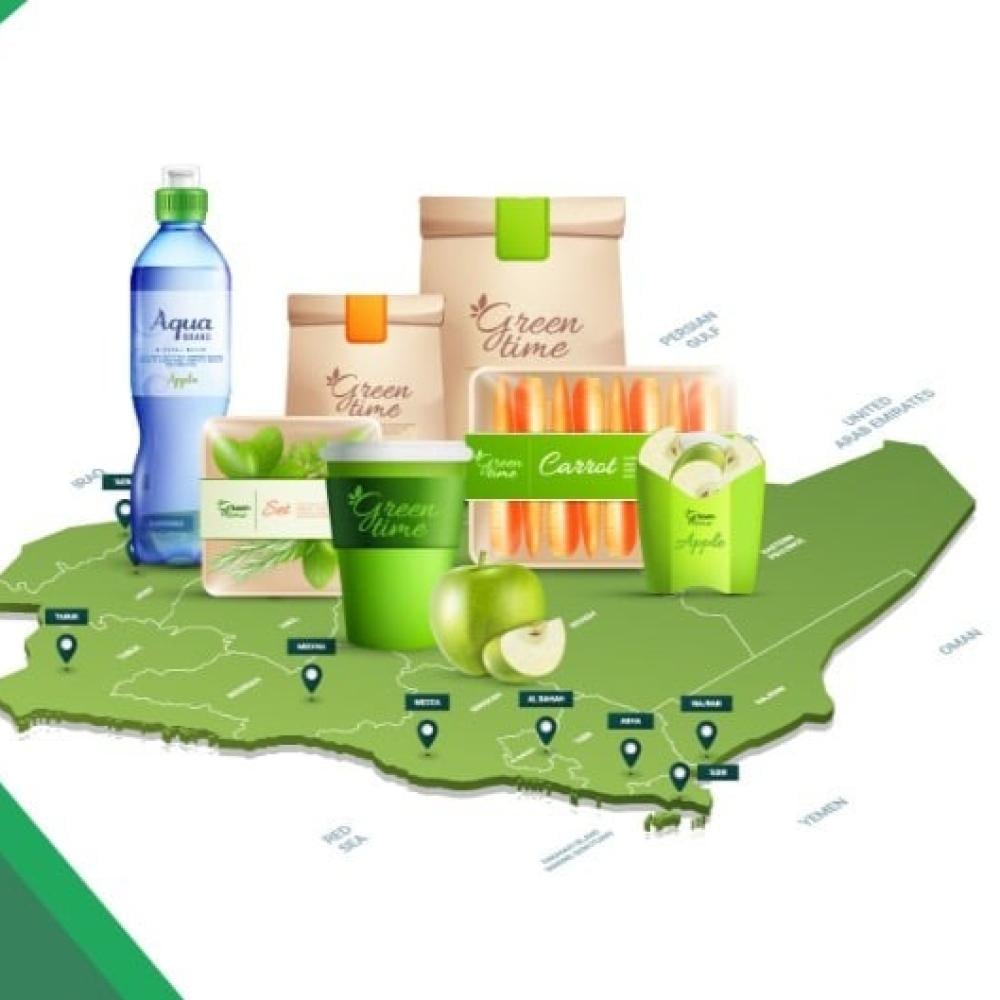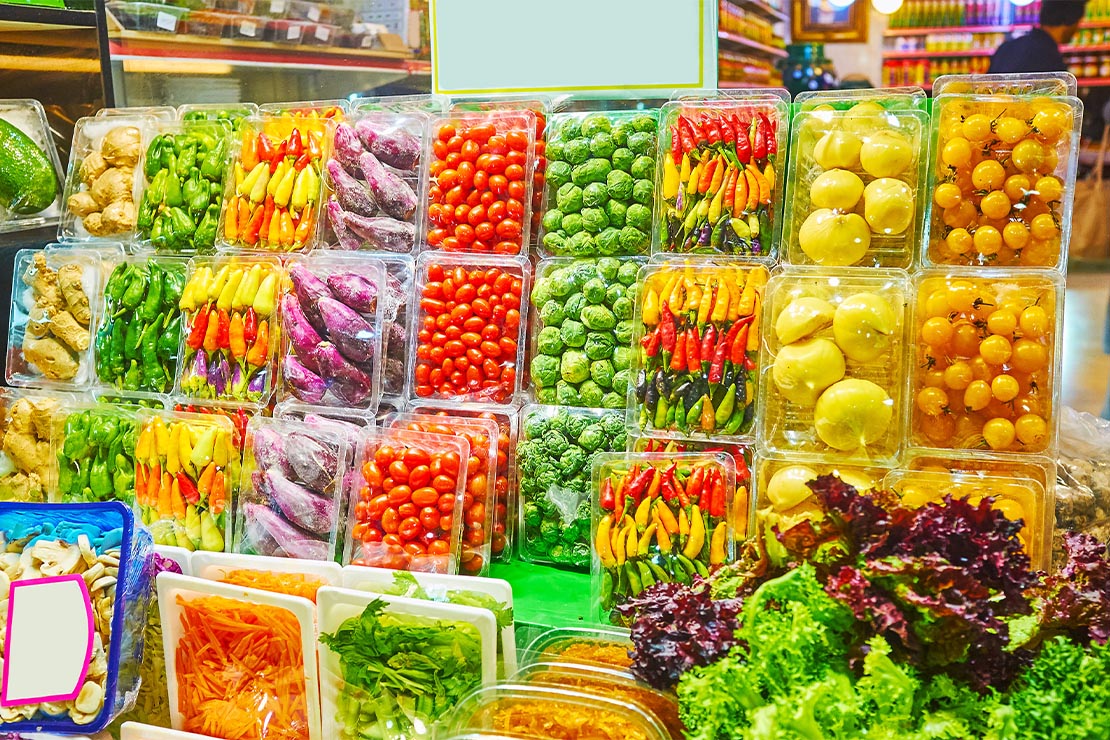
**Welcome to the food store in Saudi Arabia**
Discover the thriving food trade market in Saudi Arabia, where opportunities are abundant and challenges are met with innovative solutions. As we explore Saudi Arabia's food import trends, you'll gain insights into what you need to know to navigate this dynamic landscape effectively.
Our commitment to exploring Saudi Arabia’s agricultural initiatives focuses on boosting local food production, aligning with the ambitious goals of Vision 2030. The role of food trade in this transformative vision cannot be understated, as it fuels economic growth and enhances food security.
Understanding the regulatory framework is essential, and we simplify Saudi Arabia's food trade policies for you, ensuring you're well-informed. Amid global supply chain disruptions, the impact on Saudi food imports is significant, and we analyze these effects on local and international suppliers.
Consumer preferences play a pivotal role in shaping the Saudi food market. We delve into the local versus imported food dilemma, addressing the rising demand for organic and healthy options. Innovative food solutions and the integration of food technology showcase how Saudi Arabia is at the forefront of change.
Join us as we highlight the essential food trade collaborations between Saudi Arabia and international suppliers, fostering a rich exchange of flavors and cultures. Our insights into the future of food retail in Saudi Arabia will keep you ahead of the trends and predictions, ensuring you are ready for the next big shift in the market.
Explore with us the exciting journey of food trade in Saudi Arabia, where every flavor tells a story, and every trade opportunity paves the way for a sustainable future.
Overview of the Food Trade Market
As the food trade in Saudi Arabia continues to evolve, understanding the significance of food imports has become paramount. Saudi Arabia is a country marked by its vast deserts and limited arable land, which presents unique challenges for local food production. Consequently, food imports play a critical role in ensuring food security and meeting the diverse dietary needs of its burgeoning population.
Importance of Food Imports in Saudi Arabia
To truly grasp the importance of food imports to Saudi Arabia, one must first acknowledge the country's demographic and economic landscape. With a population approaching 35 million, the Kingdom has a high demand for food products that far exceeds what can be produced domestically. For instance, in 2022 alone, the value of Saudi food imports stood at around $20 billion, reflecting the necessity of external sources to satisfy consumer needs.
Addressing Food Security
Food security is a central issue for Saudi Arabia. The Vision 2030 initiative underscores this need by prioritizing food security as a key component of the Kingdom’s long-term goals. This vision aims to diversify the economy and reduce dependence on oil, which includes enhancing the agricultural sector and fostering international food trade partnerships.
- Key statistics about food imports:
- Approximately 90% of the country’s grain is imported.
- Major import partners include the United States, Brazil, and India.
Another important aspect is the cultural significance of diverse foods. With a rich tapestry of traditions and flavors influenced by its geographical location, Saudi Arabia's food market thrives on various global culinary tastes. This multiculturalism drives the demand for a wide array of imported products, such as:
- Fresh fruits and vegetables
- Frozen and processed foods
- Organic products
- Specialty items catering to local tastes
Economic Contributions
Food imports are not solely about meeting dietary needs; they also significantly contribute to the Kingdom's economy. Saudi Arabia's position as a pivotal market within the Gulf Cooperation Council (GCC) enhances its role as a top destination for food traders. Large-scale food exhibitions, such as the Saudi Food Show in Riyadh, provide invaluable networking opportunities for businesses. These events showcase the latest products and innovations, further fueling collaboration and investment in food import activities.Saudi businesses increasingly recognize the potential that food imports hold for spurring growth. Collaborations with international suppliers have led to the establishment of more sustainable food practices and technologies, ultimately benefiting both consumers and the economy.In conclusion, food imports play a vital role in the ecosystem of the Saudi food trade market. As the nation moves forward, the intricate balance between domestic production and international sourcing will continue to evolve, driven by both consumer demands and strategic economic initiatives. Understanding this landscape is essential for anyone involved or interested in the food trade in Saudi Arabia today.
Opportunities in the Food Trade Sector
Building upon the necessity of food imports in Saudi Arabia, it becomes evident that the food trade sector is ripe with opportunities. The Kingdom has embarked on a significant journey toward economic diversification, particularly in the food trade domain. With a commitment to Vision 2030, the focus is on transforming various sectors, including agriculture and food, to promote sustained growth.
Economic Diversification and Investment
Economic diversification is a cornerstone of Saudi Arabia's Vision 2030. The government aims to lessen reliance on oil revenues by encouraging investments in non-oil sectors, and food trade stands at the forefront of this mission. There are several compelling reasons why stakeholders are taking notice of this burgeoning sector:
- Attractive Investment Climate:The Saudi government has implemented reforms, making it easier for foreign investors to tap into the food market. These reforms include:
- Reducing barriers for international partnerships.
- Offering incentives for local and global businesses to establish operations in the Kingdom.
- Developing Infrastructure:Enhanced logistics and transportation networks are crucial for the food trade sector. Investments in modernizing ports and roads significantly streamline the supply chain for food imports. This allows businesses to operate efficiently, thus translating to better prices for consumers.
- Increased Local Production:Government initiatives focus on growing the local agricultural sector to complement imports. Investment in agricultural technology and research leads to innovations that enhance productivity.
Overall, with a supportive policy environment and a growing appetite for foreign investments, the food trade sector in Saudi Arabia offers a wealth of opportunities.
Growing Demand for Diverse Food Products
As previously noted, the cultural landscape of Saudi Arabia is diverse, and this drives a growing demand for various food products. Today’s consumers are increasingly savvy and appreciate a wide range of food options. This sets the stage for tremendous market expansion.
- Health-Conscious Choices:
- The shift towards healthier eating is evident as more consumers seek organic and nutritious food products. There's a burgeoning demand for:
- Organic fruits and vegetables
- Whole-grain products
- Low-sugar and gluten-free alternatives
- International Flavors:
- Saudi Arabia's multicultural population has introduced a wide array of culinary preferences. The popularity of international cuisines creates opportunities for:
- Ethnic food brands to expand their offerings.
- Restaurants to incorporate diverse menus reflecting global trends.
- E-commerce Growth:
- The rise of e-commerce has revolutionized the food trade sector. Online grocery shopping is no longer a novelty; it has become a necessity. Companies investing in e-commerce platforms can tap into this growing market segment:
- Providing convenient access to a variety of food products.
- Catering to busy lifestyles with home delivery services.
In summary, the opportunities within the food trade sector of Saudi Arabia are abundant, driven by economic diversification and a growing demand for diverse food products. Producers, distributors, and investors alike have the chance to capitalize on these trends, making this an exciting time for the food trade landscape in the Kingdom. As the market continues to evolve, staying attuned to consumer preferences and market dynamics will be vital for success.
Technological Advancements in Food Trade
As the food trade sector in Saudi Arabia continues to attract attention and investment, technological advancements are rapidly transforming the market landscape. These innovations not only streamline processes but also enhance productivity, ultimately meeting the growing demands of a diverse consumer base. Let's take a closer look at two key areas driving change: the adoption of food technology and the impact of e-commerce and logistics.
Adoption of Food Technology
Technology is revolutionizing the way food is produced, processed, and distributed. From precision farming to advanced food processing techniques, Saudi Arabia is embracing these innovations to boost its food trade sector. Here are some notable trends in food technology:
- Precision Agriculture:Farmers are leveraging data analytics, drones, and IoT (Internet of Things) devices to optimize crop yields. These tools enable them to:
- Monitor soil health and moisture levels in real-time.
- Apply fertilizers and pesticides more efficiently.
- Make informed decisions about planting and harvesting based on data-driven insights.
- Food Processing Innovations:Advanced processing technologies, including high-pressure processing and smart packaging, extend the shelf life of products and reduce food waste. This is critical, especially in a country where food imports account for a significant portion of consumption.
- Sustainable Practices:The adoption of technology leads to more sustainable practices in food production. For example, vertical farming techniques are being introduced, allowing for efficient land use and reduced water consumption. This sustainability focus aligns well with consumer preferences for ethically sourced and environmentally friendly products.
By embracing food technology, Saudi Arabia is not only enhancing its food security but also paving the way for a more sustainable future in the food trade sector.
Impact of E-commerce and Logistics
The rise of e-commerce has been a game-changer for the food trade market in Saudi Arabia. With the increasing penetration of the internet and smartphone usage, online grocery shopping has gained immense popularity. This trend presents exciting opportunities for businesses and consumers alike:
- Convenience for Consumers:Shoppers can now explore a variety of food products from the comfort of their homes. This change in shopping behavior has led to an increase in demand for online grocery platforms, with many offering features such as:
- Personalized product recommendations.
- Same-day deliveries or scheduled deliveries at consumer convenience.
- Expanded Market Reach:For businesses, e-commerce allows for greater market penetration without the need for physical stores. Local and international suppliers can reach a broader audience, catering to diverse food preferences. This accessibility enhances competition, resulting in better pricing and quality for consumers.
- Logistics Innovations:Efficient logistics and supply chain management have never been more crucial. Companies are investing in technologies like automated warehousing systems and transportation management software to streamline operations. These advancements enable:
- Faster order fulfillment.
- Reduced delivery times.
In conclusion, technological advancements are fundamentally reshaping the food trade landscape in Saudi Arabia. With the adoption of innovative food technologies and the explosive growth of e-commerce, businesses must adapt to remain competitive. By harnessing these technological developments, the Kingdom can enrich its food trade sector, better serve its diverse consumers, and foster a more sustainable food ecosystem. As we witness these changes, it's clear that the future of the food trade in Saudi Arabia is both exciting and full of potential.
Challenges Facing the Food Trade
While the technological advancements and opportunities in the food trade sector create a vibrant landscape, challenges remain that can hinder progress. Two significant obstacles stand out: regulatory hurdles for international suppliers and global supply chain disruptions. Understanding these challenges will help stakeholders navigate the complex dynamics of Saudi Arabia's food trade.
Regulatory Hurdles for International Suppliers
For international suppliers looking to enter the Saudi food market, the regulatory landscape can be quite daunting. Navigating the rules and regulations is essential for success, and often, these regulations can pose challenges that deter potential entrants. Here are some key considerations:
- Import Regulations:Saudi Arabia has stringent import regulations designed to ensure food safety and quality. Suppliers may face challenges such as:
- Possessing the correct documentation for food items, including health certificates and origin documents.
- Complying with local food standards set by the Saudi Food and Drug Authority (SFDA).
- Tariffs and Import Duties:Import tariffs can vary depending on the type of food products being brought into the country. The unpredictability of tariffs can complicate cost planning for international suppliers, potentially making certain products less competitive in the market.
- Labeling Requirements:Adhering to local labeling laws is essential for food products. All labels must be in Arabic and meet specific guidelines regarding nutritional information and ingredient lists. This can be an additional layer of complexity for foreign brands without local expertise.
Despite these challenges, many international suppliers are finding ways to adapt and thrive in the Saudi market. Building relationships with local partners can be an effective strategy to navigate bureaucratic hurdles.
Global Supply Chain Disruptions
In recent years, global supply chain disruptions have been a hot topic, and the food trade sector in Saudi Arabia has not been immune to their effects. From the COVID-19 pandemic's impact to geopolitical tensions, these disruptions present real challenges:
- Logistical Delays:Transportation bottlenecks caused by port congestions or disruptions in logistics networks can delay the timely delivery of food imports. For instance, an increase in shipping costs and longer wait times can impact the availability of essential goods, leading to fluctuating prices for consumers.
- Access to Raw Materials:Agricultural supply chains can be significantly affected by environmental changes, such as droughts or other climate-related issues. This can hinder both domestic and international suppliers, resulting in reduced availability of food products in the market.
- Consumer Demand Shifts:During periods of crisis, consumer behavior often shifts. For example, the recent surge in demand for certain food items during global crises can result in shortages, impacting overall market stability and creating challenges for suppliers to meet consumer expectations.
Navigating these global challenges requires agility and strategic planning. Stakeholders must focus on building resilient supply chains, ensuring that they can respond rapidly to unforeseen disruptions.In summary, while the food trade sector in Saudi Arabia presents exciting opportunities, it also faces significant challenges. By understanding regulatory hurdles and global supply chain disruptions, businesses can devise strategies to effectively navigate these obstacles. As they adapt to this complex landscape, the potential for growth remains strong, paving the way for both local and international players in the food trade market.
Conclusion
As we reflect on the complexities surrounding the food trade sector in Saudi Arabia, it’s clear that this market is not only bustling with opportunities but also fraught with challenges. From regulatory hurdles faced by international suppliers to the repercussions of global supply chain disruptions, stakeholders must navigate a multifaceted landscape while remaining attuned to consumer preferences and technological advancements.
The Path Forward: Opportunities and Innovations
One of the most remarkable aspects of the Saudi food trade market is its alignment with the Kingdom's Vision 2030 initiative. This vision has set the stage for economic diversification, allowing the food trade sector to flourish and innovate. Observing this transformation is inspiring, as it signifies a shift towards sustainability, technology adoption, and a commitment to enhancing food security.
- Growing Market Potential: The burgeoning demand for diverse food products opens doors for local and international suppliers alike. As consumers become more health-conscious and adventurous in their culinary choices, suppliers that embrace innovation will undoubtedly find their niche in this competitive landscape.
- Technological Upsurge:The integration of cutting-edge technologies in food production, processing, and distribution paves the way for smarter, more efficient operations. As international businesses continue to invest in this evolving market, enhancing local capacity through technology transfer will lead to a more resilient food ecosystem.
Addressing Challenges with Strategic Planning
While potential rewards abound, it’s essential to recognize the underlying challenges that may impede progress. For instance, international suppliers must remain vigilant regarding local regulations and compliance standards, as these are fundamental to maintaining market access. Building relationships with local partners can serve as an invaluable strategy to overcome bureaucratic hurdles.Additionally, the realities of global supply chain disruptions require firms to build resilience and agility in their operations. Here are some steps businesses can take to address these hurdles:
- Diversifying Supply Sources: Companies should consider multiple suppliers and logistics partners to mitigate risks associated with overreliance on a single source.
- Investing in Technology: Integrating advanced analytics and automation technologies can enhance supply chain visibility and streamline operations.
- Engaging in Continuous Learning: Staying abreast of market trends, regulatory changes, and technological advancements will enable businesses to adapt quickly to evolving conditions.
In conclusion, the food trade sector in Saudi Arabia is a dynamic marketplace marked by growth potential and innovation, even amid challenges. By embracing opportunities, leveraging technological advancements, and developing strategic responses to regulatory and logistical barriers, stakeholders can play a vital role in shaping the future of food trade in the Kingdom. As the landscape evolves, it offers the promise of a richer, more sustainable food ecosystem that benefits everyone involved—from producers and suppliers to consumers. The journey ahead is undoubtedly exciting, and those willing to adapt and innovate will find great success in this vibrant market.
goods, a growing population, and changing consumer preferences. Here’s an overview of the landscape, key import categories, domestic production, regulations, and trends in Saudi Arabia:
Overview of Food Trade in Saudi ArabiaSaudi Arabia is heavily food trad
imports due to its arid climate and limited agricultural resources, with roughly 80% of food supply imported. As a result, it has become a significant market for food exporters worldwide, particularly from countries like Brazil, India, the United States, and various European and Asian countries. The country's Vision 2030 initiative is pushing for increased food security and domestic production, but imports will remain essential to meet demand.
Top Food Import Categories
- Cereals and Grains:
- Wheat, Rice, and Barley are staples in Saudi Arabia, with rice and wheat imports primarily from India, the United States, and Canada.
- Barley is crucial for animal feed, as Saudi Arabia has a large livestock sector, and it is one of the largest importers of barley globally.
- Meat and Poultry:
- Chicken is extremely popular, with Brazil as a leading supplier.
- Beef and Lamb are also commonly imported, particularly from Australia, New Zealand, and the United States, alongside live animal imports from Sudan and Ethiopia.
- Dairy Products:
- Milk, cheese, and yogurt are high-demand products, with imports from New Zealand, Europe, and neighboring GCC countries.
- Saudi dairy brands such as Almarai and Nada have a strong local presence, but imported products still make up a large portion of the market.
- Fruits and Vegetables:
- Imported from neighboring countries like Egypt and Turkey as well as from Europe, the Americas, and Asia.
- Saudi consumers prefer a wide variety, leading to imports of exotic and seasonal fruits that cannot be produced locally.
- Processed and Packaged Foods:
- With urbanization and changing lifestyles, demand for processed foods, snacks, frozen foods, and ready-to-eat meals is growing.
- Leading suppliers include the United States, Europe, and neighboring GCC countries.
Domestic Food Production
While agriculture faces limitations, Saudi Arabia is making efforts to increase local food production:
- Dairy Industry:
- Companies like Almarai, Nadec, and Al Safi Danone have made Saudi Arabia a self-sufficient producer of milk and dairy products.
- Poultry Farming:
- Poultry is a priority sector for local production, with investment to meet rising demand. Major brands like Tanmiah and Almarai have poultry farms and processing facilities.
- Aquaculture:
- The government is encouraging aquaculture (especially fish farming) along the Red Sea coast to reduce reliance on imported seafood.
- Greenhouse Farming:
- Investment in greenhouse technology and hydroponics is growing to cultivate vegetables and herbs locally, reducing dependency on imports and improving food security.
Food Trade Regulations and Standards
The Saudi Food and Drug Authority (SFDA) oversees food imports and ensures that products meet strict safety and quality standards. Key regulations include:
- Labeling Requirements:
- Labels must be in Arabic and include product name, ingredients, expiration date, nutritional information, and country of origin.
- Halal Certification:
- All meat and poultry imports must have a Halal certification from an approved authority, adhering to Islamic dietary laws.
- Health and Safety Standards:
- Food products must meet SFDA standards for contaminants, pesticide residue limits, and additives, following internationally recognized benchmarks.
- Organic Certification:
- Growing demand for organic products has led to regulations and certifications to ensure that organic food products meet SFDA standards.
Current Trends in Saudi Food Trade
- Rise in Health-Conscious and Organic Products:
- There is an increasing demand for organic, gluten-free, and low-sugar food options due to health awareness among Saudi consumers. Many retailers are dedicating shelves to health-focused brands.
- Growth of E-commerce in Food:
- Online grocery platforms like HungerStation, Nana Direct, and Carrefour’s online store are increasingly popular, with more Saudis buying food products online for convenience and safety, especially after the pandemic.
- Preference for Convenience Foods:
- The demand for ready-to-eat meals, frozen foods, and snacks is on the rise, driven by busy urban lifestyles and a young population.
- Food Security Initiatives:
- Vision 2030 has spurred investments in agricultural technology, local farming, and international farming partnerships to reduce dependence on imports and improve local food security.
- Saudi Market Access for Foreign Investors:
- The government has relaxed certain restrictions, encouraging foreign food businesses and brands to enter the Saudi market. This openness is attracting international brands and creating opportunities for cross-border food trade.
Opportunities for Food Traders and Exporters
- Diverse Product Range: Saudi consumers seek diverse food products, including high-quality international brands, which provides excellent opportunities for exporters of specialty foods, health products, and unique flavors.
- Seasonal Demand Peaks: Ramadan is a peak season for food sales in Saudi Arabia, with demand for staples, sweets, and beverages surging, which makes it a lucrative time for food businesses.
- B2B Distribution and Partnerships: Partnering with major retailers like Panda, Lulu Hypermarket, Carrefour, and Danube for distribution can expand market reach. Food brands can also collaborate with hotels, restaurants, and cafés, especially as the hospitality sector is growing.
By keeping up with local preferences, regulatory standards, and evolving trends, food traders can successfully navigate and benefit from Saudi Arabia's expansive and growing food market.
Confectionery and biscuit products
Personal care and cleaning products
Personal care and cleaning products



